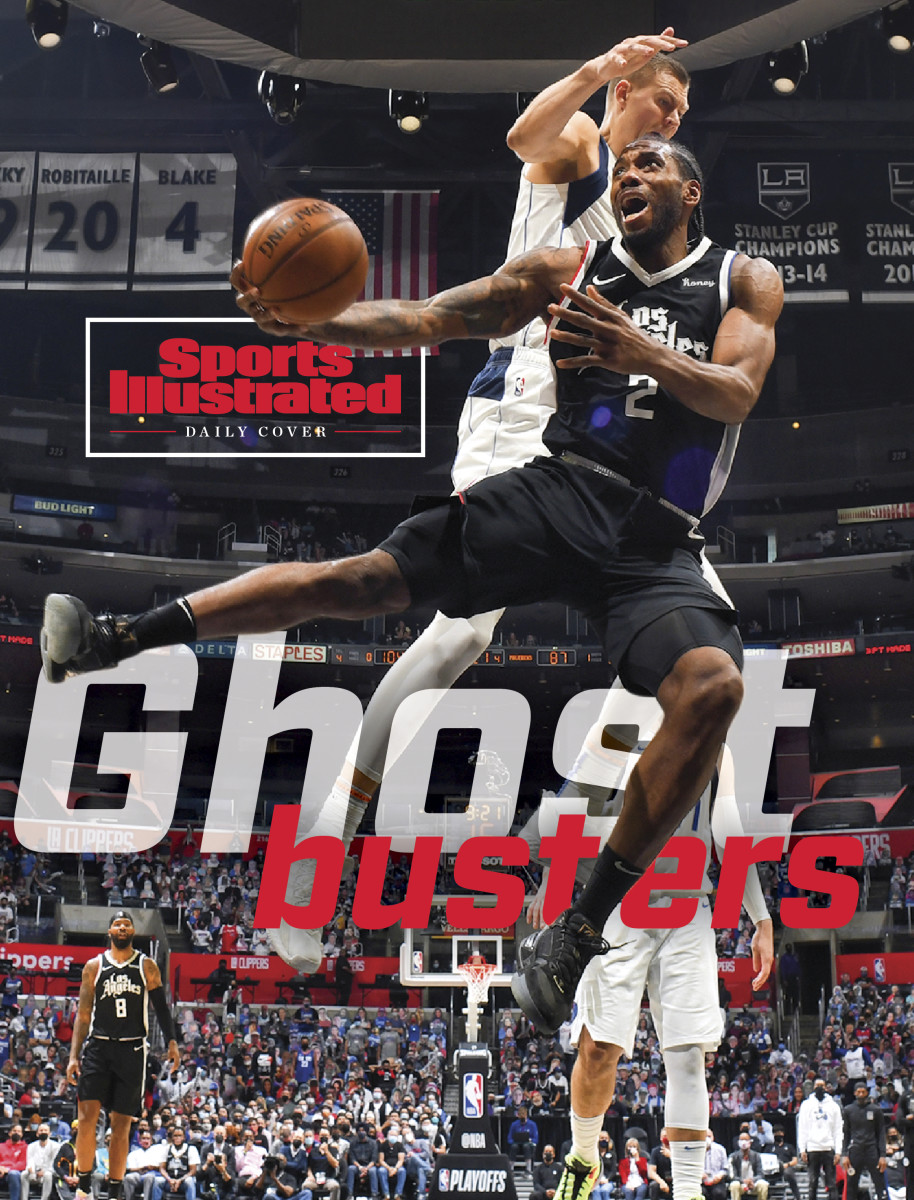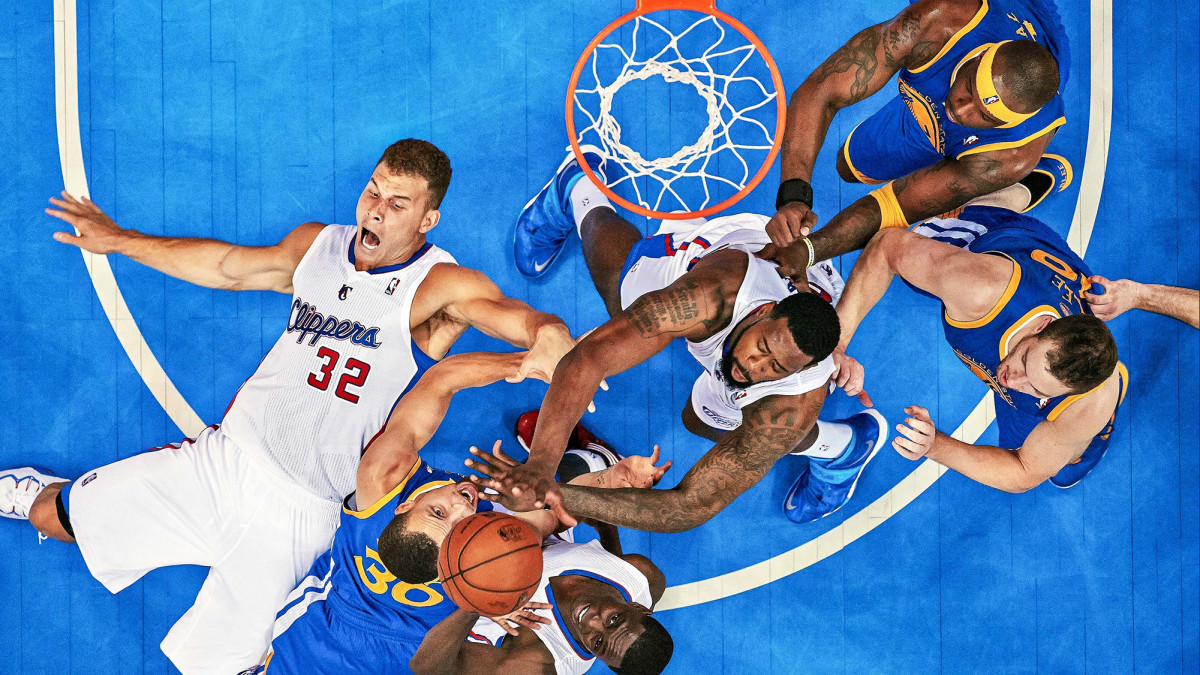The Clippers Are Battling the Jazz—and Their Own Cursed History
In the closing seconds of a Game 2 loss to Dallas, amid the sullen faces on the Los Angeles sidelines you could almost see the ghostly visages of Clippers past. Of Chris Paul, Blake Griffin and DeAndre Jordan, the core of Lob City, a freewheeling, rim-running team that won the franchise’s first two division titles and averaged 54.6 wins per season between 2013 and 2017, but they had just two postseason series victories to show for it. Of Elton Brand, Corey Maggette and Sam Cassell, Clippers stars of the early aughts whose seasons routinely ended before the playoffs. Of Terry Cummings, Michael Cage and Danny Manning, leaders of 1980s L.A. teams that went an entire decade without making a postseason appearance.

As big market franchises go, few, if any, have the history of futility of the Clippers, an organization that in its 51st year of existence (including eight in Buffalo and six in San Diego) has never won so much as a conference title, much less a championship. And as the Clippers, with their All-NBA talent and $138 million payroll, stumbled into an 0–2 first-round series hole to the Mavericks, it appeared the litany of disappointing finishes was going to grow even longer.
Only … it didn’t. The Clippers rallied, winning two in Dallas to even the series. In Game 6, Kawhi Leonard (45 points) outdueled Luka Dončić (29 points, 11 assists) to stave off elimination. In Game 7 it was Leonard again, this time with a 28-point, 10-rebound, nine-assist gem, getting the better of Dončić (46 points, 14 assists) to close out a stunning comeback.
As the NBA formally enters the second round of the postseason, perhaps the most intriguing question is: Can this be the Clippers’ year? L.A. came into the postseason with lofty expectations. Leonard had entered the regular season as an MVP candidate—and when he was on the floor (he missed 20 games), he looked the part. Paul George is an established All-Star. Marcus Morris, rewarded with a four-year, $64 million contract last offseason, has proven to be a reliable third option. The supporting cast, including midseason acquisition Rajon Rondo, is strong.
But this was also a team that tanked its season finale, losing to a Thunder team that looked impervious to even the most insistent of tankers in a far-from-confidence-inspiring move made to essentially avoid the Lakers in the second round. And the scars from last season, when the Clippers blew a 3–1 series lead to Denver in the conference semifinals, remained. As Leonard acknowledged before the Mavericks series, the key to the team’s postseason success was “between the ears.”
Arguments for the Clippers' being successful going forward begin with Leonard, who in a non–LeBron James universe could make an argument to be called the most dominant playoff performer of his generation. It was Leonard, in 2014, who powered the Spurs to a 4–1 title-clinching win over the Heat, earning Finals MVP. Five years later, in Toronto, Leonard was knocking down a memorable three-pointer to knock out the 76ers in the conference semis, outdueling league MVP Giannis Antetokounmpo in the conference finals, and leading the Raptors past the Warriors in the Finals, before picking up another Bill Russell trophy along the way.

Leonard’s physical gifts are well documented, beginning with his supersized hands, his sturdy build and a jump shot the 6' 7", 225-pound forward has spent years refining. His mental skills include an ability to forget. Some players see experience as an advantage in the postseason. Leonard isn’t one of them. “I don’t know how other players think or people think, but just for me, it’s about the situation that’s in front of you,” Leonard says. “Just because you played great in whatever, nine Game 7s, doesn’t mean you play great in [the 10th]. It’s all about the moment.
“Sometimes when you’re overconfident you play bad, and sometimes when you’re down on yourself, you play good. But like I said, for me, it’s about focusing on that moment, having fun and playing hard. That's it. It’s a game of basketball.”
There are other reasons. There is a potent offense (fourth in the NBA in efficiency during the regular season) and a stingy defense (eighth). There is George, who after an uneven first year in L.A. pieced together one of the best seasons of his career in his second. There is Tyronn Lue—elevated to head coach after the Clippers severed ties with Doc Rivers last summer—whose tactical decisions against the Mavericks (going small after Game 2, backing Reggie Jackson, who delivered 25 points in Game 6 and 15 in Game 7, after early series struggles) were significant in L.A.’s comeback.
The main argument against the Clippers' success is simple: It’s the Clippers. No, this L.A. team can’t be held accountable for Mike Dunleavy’s occasionally head-scratching coaching decisions 15 years ago, for Maggette’s inefficient shooting, for Paul and Griffin’s injury issues or for the 2015 team's coughing up a 3–1 lead in a second-round loss to the Rockets. But they can be tied to last season’s failures. That team shrunk in the moment against Denver, and the core of that unit remains. And as often as the Clippers dismiss last season’s results (“that s--- is over,” says Lue), the shadow of that failure lingers.

And it will continue to. L.A.’s series-saving comeback against Dallas was a high-water moment, but it will be quickly forgotten if the Clippers fizzle in the second round. And against Utah, L.A. is facing a more formidable opponent. If the Mavericks were the Luka Dončić Show, the top-seeded Jazz are Donovan Mitchell & Friends. Mitchell is the linchpin, but he is flanked by the NBA’s most prolific three-point shooting attack, the league’s reigning Sixth Man winner (Jordan Clarkson) and its runner-up (Joe Ingles), not to mention the NBA’s best interior defender (Rudy Gobert). Says Lue, “We know we’ve got to do a better job this series than we did last series of taking away the three-point shot, making those guys put the ball on the floor, and then having our back line ready to help.”
The Lob City Clippers’ failures led to their eventual breakup, and it’s a near certainty that a second-round exit will spark changes with this group. A roster overhaul, a front office shakeup—everything is on the table. Los Angeles is truly a team at a crossroads. Win, and exorcise the demons that have haunted the franchise for decades. Lose, and the ghosts of Clippers’ failures will have even more company.
More NBA Playoff Coverage:
• Who's Ready for a Hawks-Nuggets Finals?
• Brooklyn Is Even Scarier Than Anyone Thought
• Devin Booker Is Ready To Be a Playoff Star
